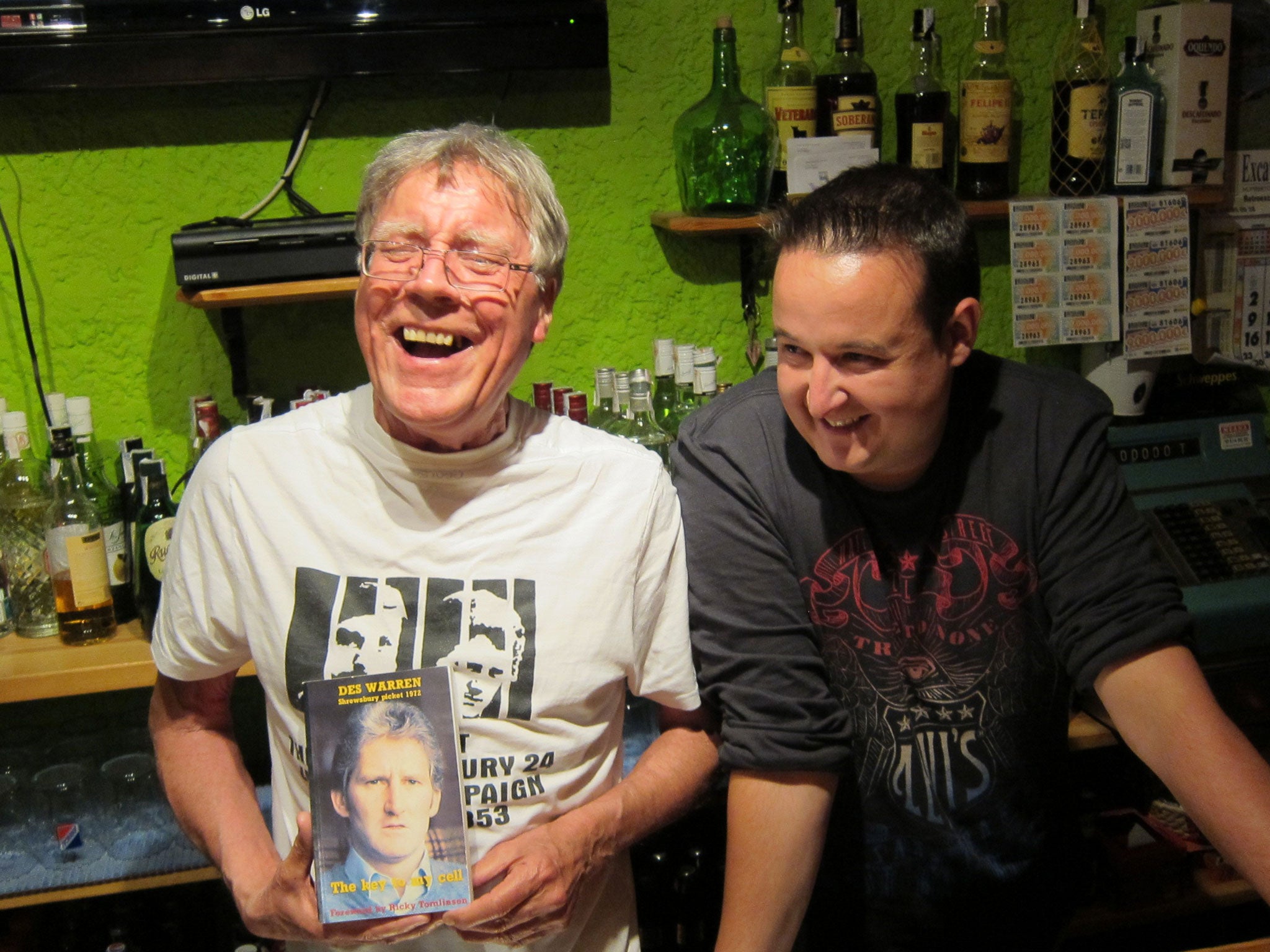Michael Abbott
Trade unionist who fought fearlessly for building workers despite four decades of intimidation and blacklisting

The best tribute to Mick Abbott is perhaps the bulging dossier compiled on him for more than 40 years by the clandestine blacklisting organisation, the Consulting Association, which was financed by the big construction companies. Sinister CA files, used to deny Abbott and more than 3,000 others work and a livelihood time and time again, were assembled while the Liverpudlian fought against building employers’ reckless safety breaches.
Abbott, who has died aged 74 after a protracted illness, was made to seem a troublemaker by his CA file, which included scores of reports from surveillance, conversations, newspaper cuttings, plus photographs sent in by contractors as well as Special Branch and CID. In fact Abbott was not the stubborn type at all. One of 12 siblings born in Kirkdale, Liverpool, he was a father of four, a warm, dignified man who inspired trust. Full of Scouse humour, he’d always try to reason with employers when a clear wrong was being committed. It was their fault if they didn’t listen.
In 1979 Abbott was on the strike committee at the Sullom Voe terminal when oil and gas workers took part in a major stoppage. Abbott’s blacklist file soon added the entry; “This man is at Sullom Voe, Shetlands, he is one of the leaders of the North Sea off-shore strike. There are 7,000 men out on strike.” A scaffolder, he was a shop steward for what was then called the Transport and General Workers Union on many construction sites throughout the 1970s, leading a number of disputes over safety and pay including – with his brother Terry, also a TGWU stalwart – a stoppage by 2,000 at Stanlow oil refinery in Ellesmere Port.
An earlier major dispute came during the construction of Fiddlers Ferry power station near Warrington. A 1964 CA entry states: “Mr Abbott said: ‘I started on the Monday morning and the guy who was in charge said to us he wouldn’t take his lads up on the wet steel. At about 10.30am that morning an old man about 62, a steel erector, came hurtling down and was impaled on the steel barriers. We are always having to fight for safer conditions in the construction industry.’”
The 1972 building strike, the first national stoppage in the industry, calling for a pound an hour and better safety and working conditions, led to Abbott becoming close friends with Des Warren and Ricky Tomlinson. Together with 24 other strikers, Warren and Tomlinson were put on trial the following year for alleged offences as flying pickets. Six were jailed after charges were brought under the hardly-used 1875 Conspiracy Act.
The convictions and sentences have become increasingly controversial following revelations about political interference by Tory government ministers in the prosecutions. Despite widespread anger over the jailings – which included three years for Warren and two for Tomlinson at Shrewsbury crown court – leaders of the Labour Party and TUC decided to limit protests to parliamentary level. Abbott, however, joined in, helping to raise money for the families of the activists, and in 1975 he was a main organiser of a march by building workers from Wigan to London to demand justice.
Demands for exposure of the shadowy political manoeuvres behind the trials continued with Abbott being elected national secretary of the Justice for the Shrewsbury Pickets campaign and organising demonstrations by people wearing “Justice My Arse” T-shirts. He was instrumental in raising funds to clear the activists’ names through an appeal to the Criminal Cases Review Commission, an action which is still in train. But he had to persistently argue against those who want to limit the campaign to the pursuit of redress at the CCRC.
Revelations in the last few years about the employers’ blacklist proved Abbott right. A total of 3,200 names were discovered on the CA’s database after an investigation by the Information Commissioner’s Office which raided a building in Droitwich in 2009.
Among documents found were invoices showing that 44 construction firms, including some of the UK’s biggest, were regularly using the database. Jack Straw, then Justice Secretary, told the Merseyside MP Peter Kilfoyle in 2003 that government records on the Shrewsbury case could not be released for “national security” reasons. David Clancy, ICO investigations manager, gave evidence to an employment tribunal that some of the information in files used to blacklist workers “could only be supplied by the police or security services.”
Abbott said last year; “My file goes back to 1964, and the last entry says that I rekindled the campaign for justice for the Shrewsbury picketers in 2006. They have been watching me all these years and passing this information around, blighting my life over four decades.”
Banned from sites, he became self-employed, installing kitchens. But he continued campaigning, including support in North-west England for the Construction Safety Campaign, which fights nationally against site dangers and abuse of regulations on asbestos and hazardous chemicals. Last autumn he and his brother Terry, secretary of the local trades council, were part of the all-night picketing in solidarity with 200 Hovis workers in Wigan who staged two walk-outs to successfully resist the imposition of zero-hour contracts.
Dave Smith, national secretary of the Blacklist Support Group, said, “Mick Abbott was an active member of our Group, running stalls at our AGMs, attending early morning protests and court cases. In 2012, Mick had private discussions with MPs on the Scottish Affairs Select Committee about the impact that blacklisting had on his working life and family. Despite serious illness, Mick continued to campaign against the blacklisting of trade union members and for the Shrewsbury pickets until his death. It is an honour to have known the man.”
Michael Abbott, trade unionist: born Liverpool 24 March 1939; married Mary (four sons); died Wigan 27 February 2014.
Join our commenting forum
Join thought-provoking conversations, follow other Independent readers and see their replies
Comments
Bookmark popover
Removed from bookmarks